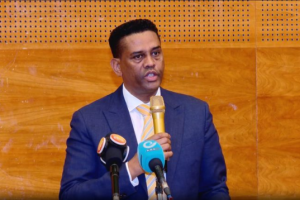BY YESUF ENDRIS
The Horn of Africa has already become one of the most contested and militarized regions with superpowers vying to control the geographically strategic corridor. This together with the long lingering border tensions among countries of the region has put the volatile region at crossroads once again. The economically poor region also continues to be prone to proxy wars, recurrent conflicts and various mayhems.
Currently, tensions in the region have reached a tipping point. Disputes relatively much serious than early times, have brewed between Ethiopia and Sudan as well as Somalia and Kenya. Some fear that the region will get into bottomless pit unless the feuds go unchecked and unresolved. The fact that the region has weak regional bloc and hosts competing powerful nation makes it difficult to ensure lasting peace and stability.
Needless to say, the internal instabilities in these countries also pose unprecedented threat not only to the countries but also to the entire region. Caught in political transitions, economic depressions and other challenges, member countries in the region have fair-share of internal problems. This again makes the area hotbeds for external forces conspire and fuel tensions.
It is obvious that dispute between or among countries has direct influence in inflaming regional conflicts. Border disputes have also stoked regional violence dashing hopes of economic integration and cooperation in the region.
This time, Ethiopia and Sudan and Kenya and Somalia are at loggerheads. Ethiopia has been accusing Sudan of aggressing and invading its borderlands with military expedition while Somalia and Kenya have also unresolved dispute. Somalia accuses Nairobi of inflaming its internal politics and interfering with the country’s election in Juba Land and border incursion and backing terrorists” inversely.
Moreover, terrorist groups in the region have also threatened the region’s security while some countries like Ethiopia and Somalia are fighting terrorism jointly though some countries are contributing little in the fight against regional insecurity due to divergence of national interests.
Regional and continental organizations are also expressing fear of disintegration of the region. IGAD as a major bloc working in the region has been repeatedly calling on leaders of member countries to avoid wrangling even though the organization does not pass any obligatory decision.
IGAD has been intending to mediate disputed issues but whether it would be effective or not remains a question. A senior official working for IGAD under a condition of anonymity told The Ethiopian Herald that IGAD is appealing to each country to resume talks and come up with bilateral agreements to settle disputed issues.
As to him, IGAD has been trying to identify the root causes of the dispute between countries… and “we have so far tried to observe some of cases between Somalia and Kenya. All issues are resolvable, if diplomatic communications continue to be used,” he told.
President of Somalia has presented the issue to IGAD in the 38th extraordinary meeting [of IGAD] and it was discussed by IGAD officials and leaders of IGAD member countries, he said.
“Djibouti has been designated as investigator of the issue following the Djiboutian delegation expressed their optional interest to do that. Then, higher civil and security officials from Djibouti and IGAD have witnessed whether allegations were correct or not.”
Briefing the case, he said that he was “one of the delegations representing IGAD during the time of visit to Mogadishu. And Somalia government has accused Kenyan administration of exacerbating Somalia’s internal political problem which could affect the country’s national sovereignty.”
“We have had a discussion with diplomats and high government officials when we were in Kenya. And then we have visited the border of the two countries where militaristic activities were allegedly reported. But we have seen no military activities so far. Everything was in place and as usual,” he told.
The dispute between Ethiopia and Sudan is about border too. The issue of border has long been evident between the two countries though the historical 1972 exchange of notes sets maps to resolve disputes and begin demarcation.
He also said that Sudan’s forces have penetrated into Ethiopian borderlands as Ethiopia launched military campaign in Tigray state.
“The Sudanese forces have extended their campaign into borderland. Amidst this situation, Ethiopian and Sudanese have held bilateral discussions aiming to resolve the skirmish,” he noted.
As to him, the confrontation between Ethiopia and Sudan as well as Somalia and Kenya must be fixed beforehand in order not to create security vacuum for terrorist and other foreign actors and prevent disintegration.
Military confrontation or remaining uncompromising among countries of the Horn thwarts regional peace and security as most countries in the state have no reliable organizations to settle such differences so far, he indicated.
As to him, possibilities of ending confrontations are still possible though bilateral discussions to resolve disputes have not yielded binding bilateral agreements so far. Mentioning further causes, he said it is time that colluding powers that are investing high put the region’s peace and security at risk.
“Somalia is at due to the presidential election and due to internal political rivalries, Sudan is also on political transition which is accompanied by power struggle between the military and civil unit of the administrations and Ethiopia has also been on law enforcement operation on the same token. All these internal situations could risk unrest that would result in insecurity in the region,” he said.
Negotiation and discussions between conflicting countries should be guided with civility and diplomatic, he stressed.
Tigistu Awolu, an expert on regional politics also said that Horn of Africa needs special considerations as the region has no any concrete political diplomacy among countries.
“In my view, diplomatic relations between and among countries of the horn is in constant changes due to change of leaderships in respective nations. It is hard to imagine regional peace would be ensured without an independent regional institutions and common agreements, in fact the member countries need to rethink the situation.”
Foreign forces are also actively engaged in inciting conflicts and conspiring against the region for own political and economic reasons besides to the rising disputes between these neighboring countries, he said adding that, the region is becoming military base of the western as competition to control the Red Sea rises. And this is another factor complicating regional politics.
To him, regional and continental organizations should play their own role to help resolve such disputes, unless the situation is addressed, ending war would not be easy, once war started. Blocs like IGAD need to play concrete role in facilitating negotiations which could result in peaceful resolutions,” he said.
“Countries in the Horn must depend on their own national interest than executing colluding powers’ interest.”
The Ethiopian Herald February 17/2021




